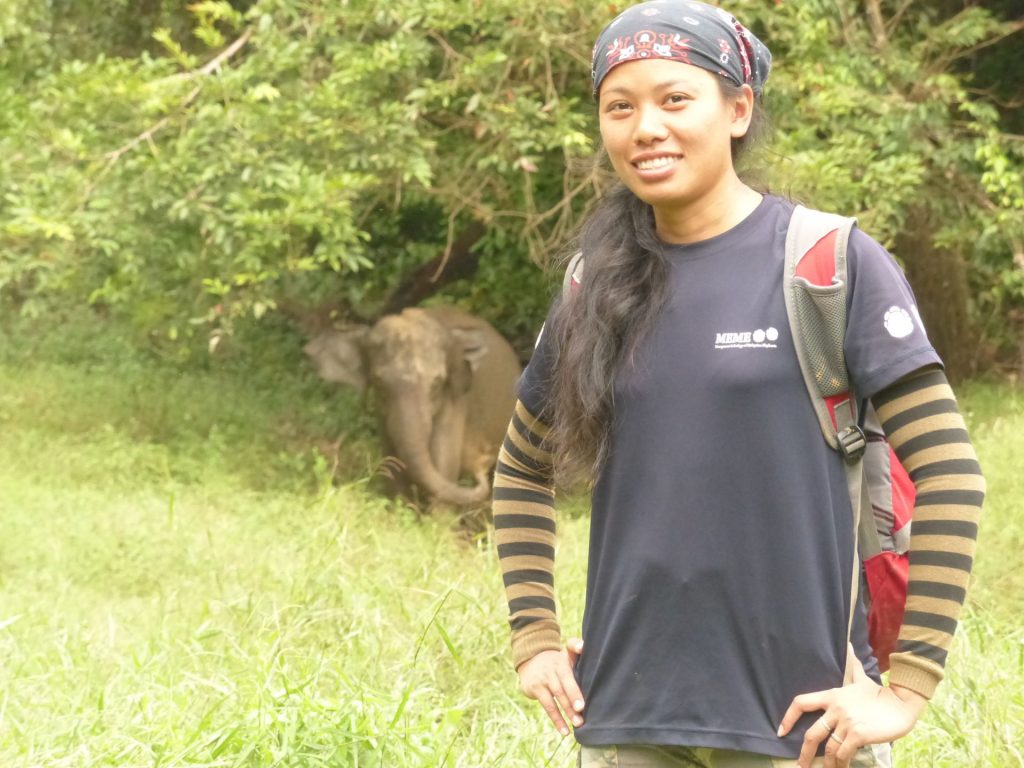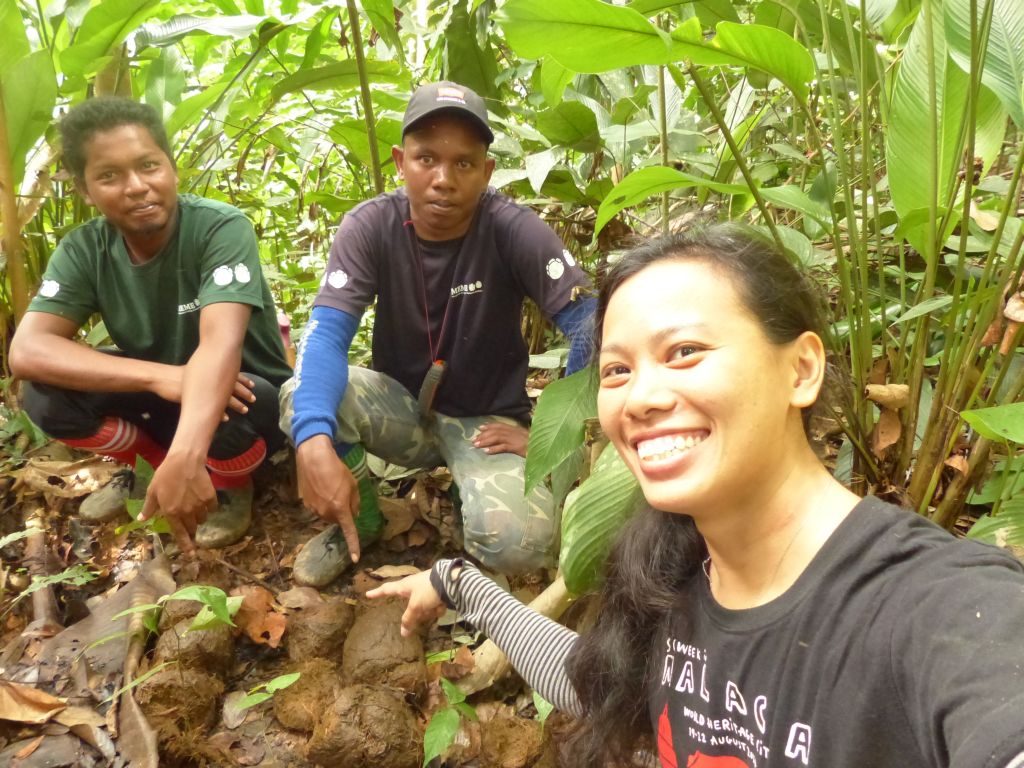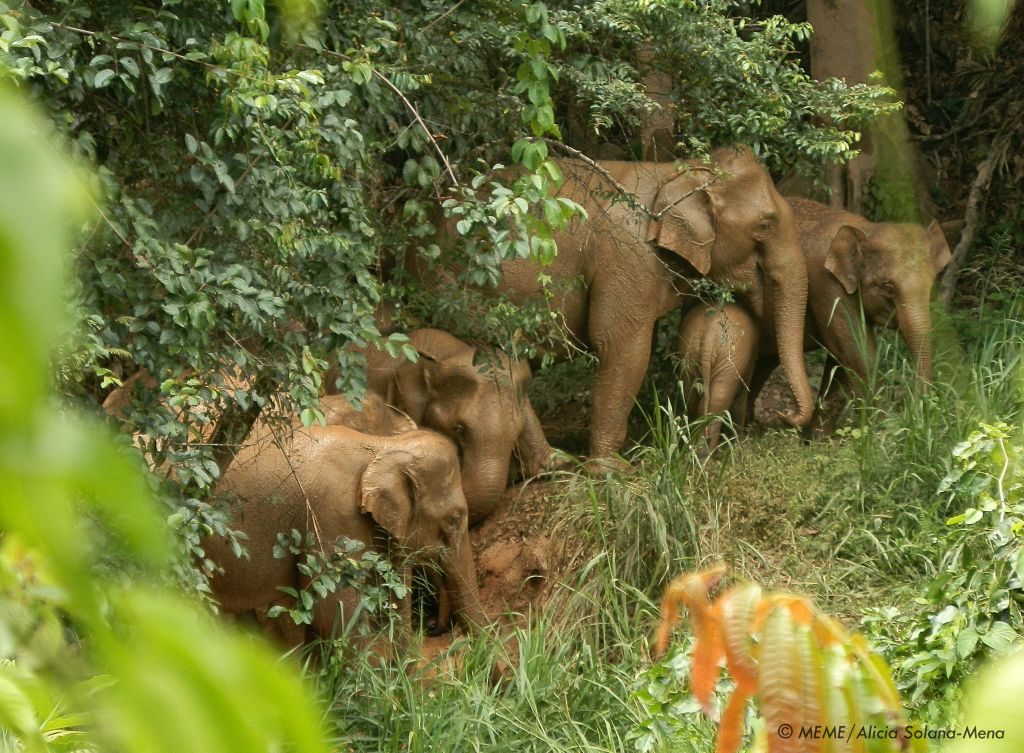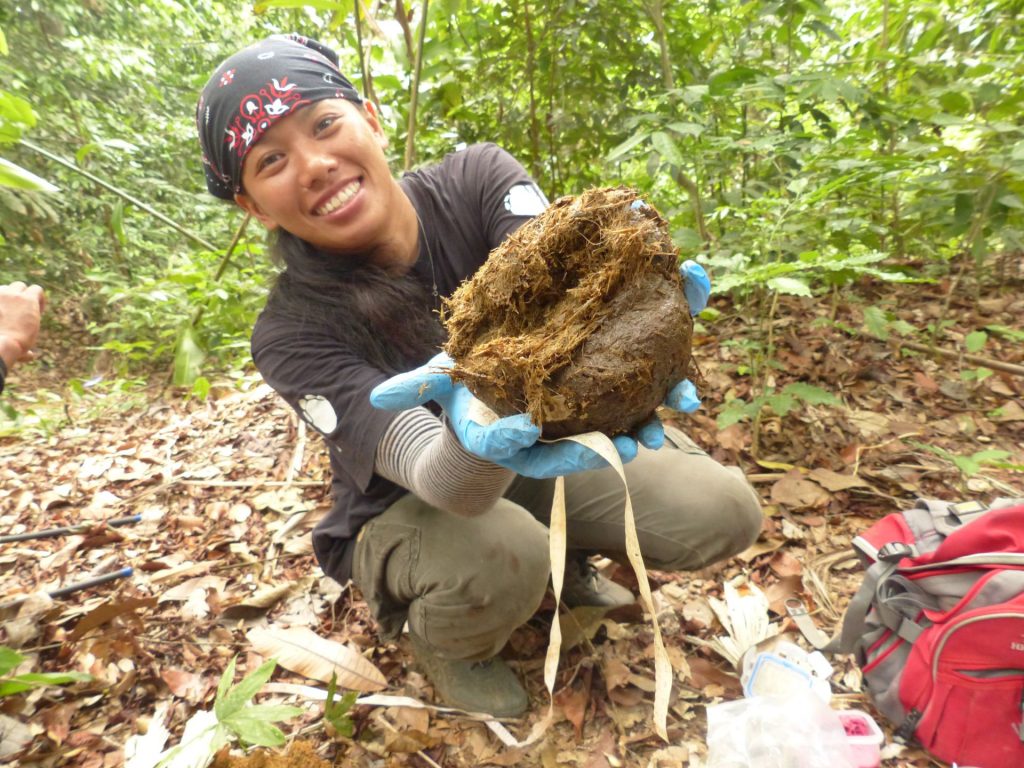Protecting Asia’s ‘mega gardeners’

Dr Wong Ee Phin, co-investigator of the MEME project
HER work requires her to venture deep into the jungle and includes collecting elephant dung. But Dr Wong Ee Phin takes it all in her stride, for her love for the gentle giants and their conservation fuels the passion for her work.
Asian elephants play an important role in maintaining balance in the ecosystem. They are responsible for dispersing large-fruited trees, creating pathways for smaller animals, and opening up salt licks for fellow forest creatures.
“They are the biggest land animals in the Asian region. Whatever they do, they have a huge influence on their surroundings and they are known as ecosystem engineers and mega gardeners. It is really amazing to observe a wild elephant bull move in the rainforest. They are so majestic and confident,” enthuses Wong, 38.

Dr Wong Ee Phin and MEME field assistants collecting elephant dung samples as part of their research.
However, they are one of the endangered species on IUCN (International Union for Conservation of Nature) Red List. The major threats to these mammals are habitat loss and fragmentation due to development, as well as poaching driven by the demand for ivory.
Recent studies done by the Management and Ecology of Malaysian Elephants (MEME) found that over the past 35 years elephants had lost 70% of their range in human-dominated landscapes in Peninsular Malaysia. This has raised a red flag among conservationists.
“I hope to make people realize that we are very lucky to have wild elephants alive. There is still time to protect and save them but we have to start now,” says Dr Wong, who is chapter president of the Society of Conservation Biology Malaysia.
“Conservation needs good science and that is what MEME is about. Our aim is to establish evidence-based management of wild elephants in Malaysia, by working together with our partners.”

A herd of Asian elephants seen in the wild in Peninsular Malaysia
MEME is a research project carried out by the University of Nottingham Malaysia Campus (UNMC) in collaboration with the Department of Wildlife and National Parks of Peninsular Malaysia. The Sime Darby Foundation in Malaysia has been supporting the MEME project since 2012.
Wong, who is an assistant professor at the School of Environmental and Geographical Sciences, Faculty of Science at UNMC, says that the “complex issues”, such as the human-elephant conflict, fragmented habitat and forest loss “require dedication from the highest government leaders down to the local communities.”
“I believe that researchers play a big role in taking a first step to connect people to elephants,and to advocate for their conservation.”
“My challenge, as the deputy investigator for MEME, is to get funding to continue the good research work that we are doing.”

Collecting fresh elephant dung samples is all part of Dr Wong Ee Phin’s research work
“We have a small team (15 people) but it still requires a sizeable amount of funding to support salaries and research in the field.
“One positive thing is that over the years, we have established good relationships with our stakeholders and with other elephant experts in the world. Our focus is now on implementation and spreading conservation knowledge on the ground.” .
“Biodiversity and environment conservation is an uphill battle at times,” she says. “But I strongly believe each and everyone who is working to save an animal, plant a tree or make their environment more sustainable is making a difference.
“Without them, the world will be in a worse predicament. So I hope everyone will continue the good fight and I welcome more support for our work to help turn the tide for wild elephants in Malaysia.”
.
Author: Elle Wong (act)





